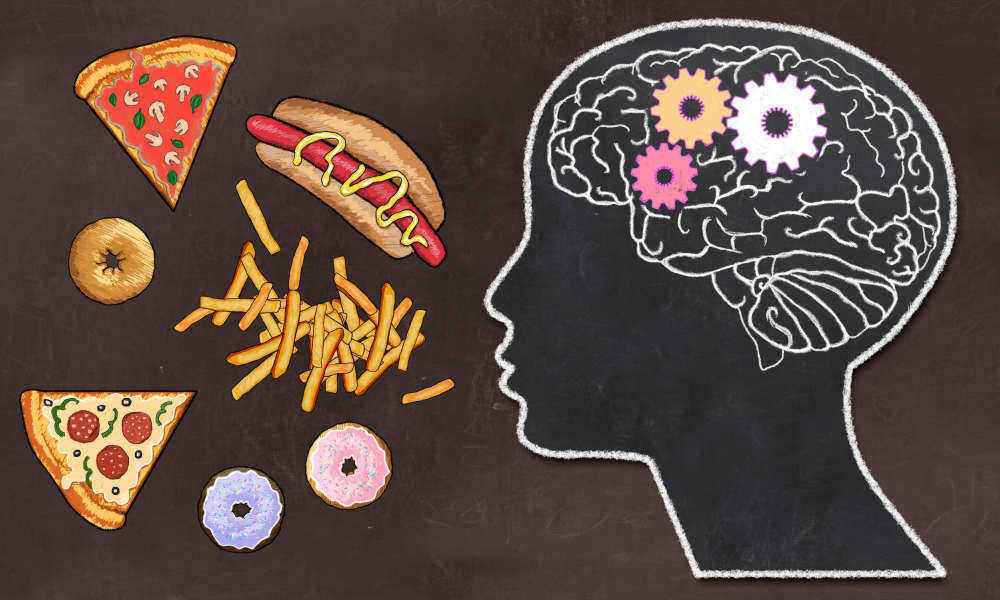Do you ever find yourself eating more than you intended to? Do you feel like you can’t control how much food you’re putting in your mouth? If so, then you may be struggling with overeating. This is a very common problem, and it can be difficult to overcome. In this blog post, we will discuss the causes of overeating and provide some tips for controlling it.
Contents
What Is Overeating Disorder?
 Overeating disorder is a type of eating disorder that is characterized by episodes of overeating or consuming large amounts of food in a short period. This disorder can lead to serious health consequences, such as obesity and type II diabetes. For example, someone with an overeating disorder might eat two pizzas in one sitting.
Overeating disorder is a type of eating disorder that is characterized by episodes of overeating or consuming large amounts of food in a short period. This disorder can lead to serious health consequences, such as obesity and type II diabetes. For example, someone with an overeating disorder might eat two pizzas in one sitting.
Overeating disorder is often caused by a combination of genetic and environmental factors. For instance, someone who has a family history of eating disorders may be more likely to develop overeating disorders. Additionally, people who are exposed to stressors or triggers (such as dieting or food insecurity) may be more likely to engage in overeating episodes.
Binge eating disorder (BED) is the most common eating disorder in the United States. It is characterized by episodes of overeating or “binges” followed by feelings of guilt, shame, and/or distress. Binge eating disorder is a serious medical condition that can lead to health problems like obesity, type II diabetes, high blood pressure, and heart disease.
Symptoms
Several symptoms are associated with overeating. These include:
- feeling like you can’t control your eating
- feeling depressed or anxious about food
- using food to cope with emotions
- feeling guilty or ashamed after eating
- overeating even when you’re not hungry
- eating until you feel uncomfortably full
- regularly eating large amounts of food in a short period
- feeling that your eating habits are out of control
These are some symptoms that can predict you are lying with an eating disorder.
Causes Of Overeating Disorder
 Overeating disorder is a condition characterized by chronic overeating. This means eating more food than what is necessary for the body to function properly. People with overeating disorders often eat large amounts of food in short periods, and they may feel out of control while doing so.
Overeating disorder is a condition characterized by chronic overeating. This means eating more food than what is necessary for the body to function properly. People with overeating disorders often eat large amounts of food in short periods, and they may feel out of control while doing so.
There are many possible causes of overeating disorder, including:
Emotional Distress
Emotional distress is one of the most common causes of overeating disorder. When people are feeling stressed, anxious, or depressed, they may turn to food for comfort. This is because eating can release chemicals in the brain that make us feel good. However, this relief is only temporary, and it can lead to long-term problems such as obesity and type II diabetes.
Boredom
Boredom is another common cause of overeating disorder. When people are bored, they may eat out of boredom or because they think it will make them feel better. However, this often leads to overeating and weight gain.
Peer Pressure
Peer pressure is another common cause of overeating disorder. When people are around others who are eating, they may feel pressure to eat as well. This is especially true if they are around people who are thin or have eating disorders themselves. Peer pressure can lead to overeating and weight gain.
Family History
Family history plays a role in why some people overeat. If your parents or grandparents struggled with weight issues, you may be more likely to overeat as well. For instance, research has found that people with a family history of obesity are more likely to be obese themselves.
Genes
A recent study found that people with a certain gene are more likely to overeat. This gene is called the FTO gene, and it’s responsible for regulating hunger. If you have this gene, you’re more likely to feel hungrier than someone who doesn’t have it.
Environment
The environment around you can also play a role in overeating. If you’re constantly exposed to tempting foods, you’re more likely to give in to temptation and overeat. This is why it’s important to be mindful of the food you keep in your house and the places you eat out.
Psychological Issues
Psychological issues can also lead to overeating. If you’re dealing with stress, anxiety, or depression, you may turn to food for comfort. This can create a vicious cycle, as the more you eat, the more likely you are to feel guilty and stressed about it. If you find yourself in this situation, it’s important to seek help from a therapist or counselor.
There are many reasons why you may overeat. It’s important to be aware of the factors that contribute to overeating so that you can take steps to control it. If you’re struggling with overeating, don’t hesitate to seek help from a professional. With the right treatment, you can get your eating under control and improve your overall health.
Complications
The complications which are associated with overeating can include:
- Obesity
- High blood pressure
- High cholesterol
- Type II diabetes
- Gallbladder disease
- Heart disease
- Sleep apnea
- Poor quality of life
- Social isolation and depression
If you are struggling with overeating, it is important to seek help. There are many resources available to help you overcome this disorder. Talk to your doctor or a registered dietitian for more information.
How Do You Stop Overeating Disorder?

There are many ways to stop overeating disorder, but the most important thing is to get help from a professional.
There are various tips to stop overeating disorder:
Get help from a professional: This is the most important thing you can do. A professional will be able to help you understand your disorder and create a treatment plan that works for you.
Change your mindset: One of the main reasons people overeat is because they see food as comfort or a way to cope with stress. If you can change your mindset and view food as nourishment, you’ll be less likely to overeat.
Create a healthy relationship with food: This means listening to your body and giving it what it needs. Eat when you’re hungry and stop when you’re full. Don’t restrict yourself from foods you love, but balance them out with healthier choices.
Move your body: Exercise can help you release endorphins, which have mood-boosting properties. It can also help to reduce stress and improve your overall health.
Create a plan: To change your eating habits will be different for everyone, but it’s important to have a plan in place. This could involve tracking your eating, setting limits on certain foods, or following a specific diet.
Stick to your plan: Making changes to your eating habits can be hard, but it’s important to stick to your plan. This may mean avoiding trigger foods, staying away from certain situations, or being more mindful of your eating.
Supportive family: Overeating can be difficult to overcome on your own. Find friends or family members who will support you through the process.
Eat mindfully and slowly: This can help you become more aware of your eating habits and help you control overeating. Pay attention to your food and how it makes you feel. Eat slowly and savor each bite.
Set realistic goals: If you set unrealistic goals, you’re more likely to become frustrated and give up. Set small, achievable goals that you can work towards.
Be patient: Making changes to your eating habits can take time. Be patient with yourself and don’t expect perfection. Remember that you are capable of making these changes and that you will get there eventually.
Make healthy lifestyle changes: In addition to changing your relationship with food, it’s important to make other healthy lifestyle changes. These can include, getting enough sleep, and managing stress.
If you’re struggling with overeating, know that you’re not alone. Many people struggle with this issue. But there are things you can do to get control of your eating habits and improve your relationship with food. Take the first step today and talk to your doctor or a registered dietitian about how you can make changes that will work for you.
Conclusion
It may be concluded that overeating is a disorder that should be taken seriously. It can lead to many health problems and even death. If you think you may be overeating, talk to your doctor or a counselor.
Overeating can be controlled with some effort and perseverance. Keep track of what you eat and how much you eat. Avoid trigger foods and situations. And most importantly, seek help if you need it. If you overeat occasionally, don’t worry too much. Just be mindful of your eating habits and try to make healthier choices most of the time. With a little effort, you can control your overeating and enjoy a healthy, balanced diet.
For further information and suggestions, please contact Therapy Mantra. We have a team of expert Dieticians and therapists that can help you overcome this problem. Get in touch with us right away to learn more about our services. You may also make an online therapy session or download our free Android or iOS app.


